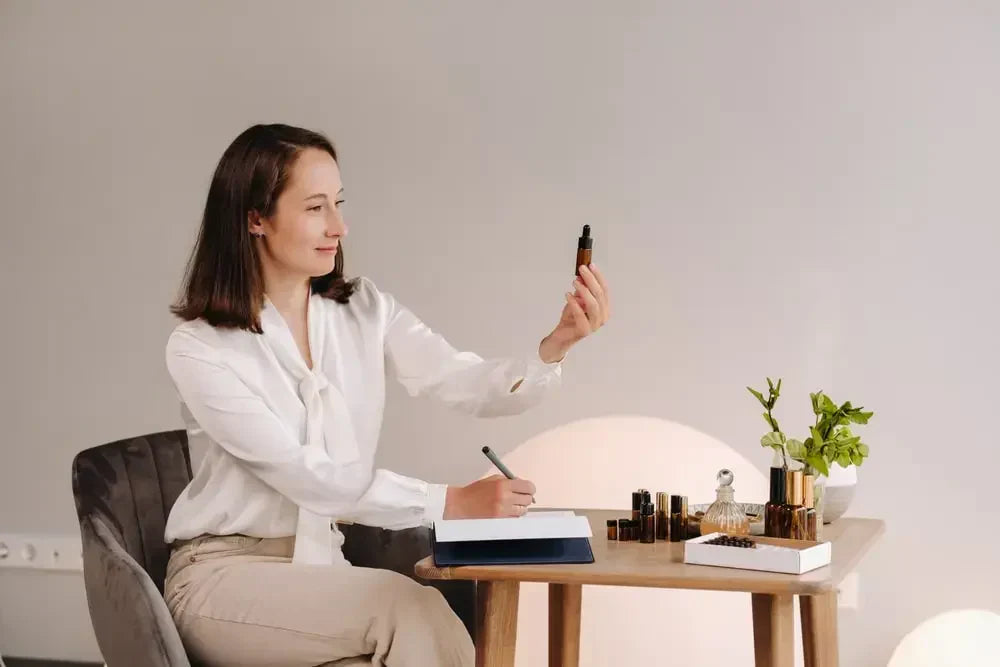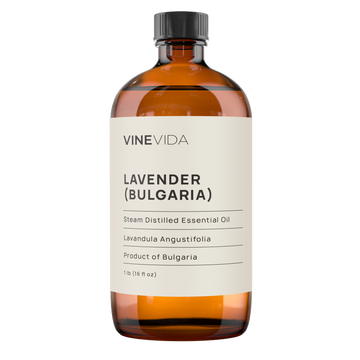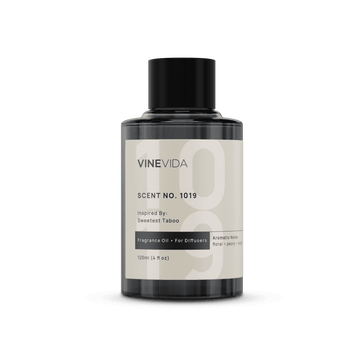This is an exciting time for VINEVIDA as we diversify from essential oils to fragrance oils. However, this can leave people needing clarification on when to use fragrance oils versus essential oils. Today we’ll examine the differences and how to get the best from both.
Can You Use Fragrance Oils For Aromatherapy?
The answer to this is to define aromatherapy; it is one of the areas where aromatherapy trips over its own feet. Do we mean to make ourselves feel better by smelling nice things or “put essential oils onto our skin to make something better?”
Fragrance oils do not have any medicinal properties, so adding them to a massage oil will only make it smell nice, nothing more.
However, there is an argument to be made for feeling happier when the kitchen smells like a Sicilian holiday versus the trash can aroma!
If by aromatherapy you mean feeling better because you are surrounded by lovely fragrances, that works. Otherwise, no, you can not use fragrance oils for aromatherapy.
Definition And Composition
Depending on their extraction and composition, there are three primary natural oils.
The most famous are essential oils that are extracted from plants by a process of distillation.
There are two types of distillation. In steam distillation, plant material is placed into a still and steam is passed through it. Alternatively, plants like vetiver, which are more rigid, are hydro distilled.
Here, the roots are effectively boiled, and the essential oil is collected from the vapors.
The term also now encapsulates citrus oils that are pressed from fruit peels.
Plants like Jasmine have really delicate flowers, which don’t do very well when they are distilled. These are solvents extracted to make absolutes.
Finally, fixed oils are cold pressed from nuts and seeds, which we tend to use as carrier and cooking oils.
These are natural oils. We could also include fish oils in that, although they do not have any place in aromatherapy.
Each group has its own pitfalls.
Essential oils are, by definition, volatile, so they evaporate quickly and do not smell for long. Top notes like citrus evaporate faster than base notes.
Solvent extraction is a costly process. The equipment needed is enormous and requires a complete factory setting. Thus, absolutes are also very expensive, so soap and candles made from absolutes become uneconomical to produce.
Fixed oils have very little to no fragrance.
Understanding Essential Oils
So, to understand when to use fragrance oils versus essential oils, it behooves you to know why plants make essential oils.
Essential oils are the concentrated essences of plants that have been distilled. It is the process of distillation that creates an essential oil. When they are still within the plant, we call them secondary metabolites because the plant makes them to make their life easier.
They are not needed for their primary functions of respiration, but instead, they manufacture to attract pollinators and to deter nibbling pests.
So, certain insects will be attracted to certain chemicals, and many different plants will make this same chemical. Bees, for example, are attracted to citral, whereas iguanas hate it.
Plants can’t wander to find themselves mates or run away from being eaten, so chemicals are their primary method of communication. To disperse their messages far and wide, they are designed to evaporate.
Which is great if you are a rose but could be better if you are a perfume manufacturer. If you only use essential oils in your perfume, it won’t last very long.
You can add fixative base notes, but this also changes the scent.
Fragrance oils can be great substitutions here.
Benefits & Drawbacks
By contrast, fragrance oils can be natural oils blended with a fixative or synthetic copy of essential oils.
Either way, fragrance oils are no longer considered to be natural oils.
The overwhelming benefit of fragrance oils is they smell more potent and will continue to do so for a while. They don’t have any properties, though. So if you want to make a candle that retains its fragrance, they are the way to go. However, if you want the candle to be relaxing, you will also need to add essential oils.
Another area that fragrance oils excel is soap making.
While a natural product may be appealing, remember that the skin needs 19 minutes to absorb essential oil. That’s simply not possible with soap, because you wash it off.
Using essential oils in soap making is luxurious but uneconomical. The soap will quickly lose its fragrance and has no medicinal properties. If you use fixed oils, it will nourish the skin, but that’s a different conversation.
Fragrance oils are not 100% pure natural, but they are designed for this job, whereas essential oils are not.
Fragrance oils smell stronger, last longer, and have a better throw (you can smell them from further away), but they have no healing properties.
When to Use Essential Oils
Health and Wellness
Chemical constituents in essential oils bind with receptors in our body to bring about healing. They absorb through the skin and into the blood system to circulate around the body. If you want something to have a physical effect outside of its smell, you must use essential oils.
Remember that each essential oil has many actions and its own safety. Check the safety of every essential oil you use.
Personal Care Products
Similarly, women’s products with rose or lavender fragrances smell romantic and feminine. However, rose essential oil nourishes and moisturizes the skin; lavender will soothe and deal with any oiliness.
If you add essential oil, your product will do way more than smell excellent.
Cleaning and Home Products
Detergents containing pine fragrance oil trick your brain into thinking the surface is clean. Still, only natural pine essential oil (any cleaning chemicals) can clean the surface.
By far the best degreaser is limonene, which comprises 97% of orange essential oil. The best practice would be to use the essential oil and add a touch of fragrance oil to make the smell last longer.
Don’t underestimate the power of something smelling clean. It’s much more uplifting and reassuring.
Cooking and Baking
The most significant essential oil export is orange oil because it is used as a flavoring.
Cinnamon, clove, and thyme are all essential oils distilled from foodstuffs.
The food industry loves essential oils because they not only add flavor but are also antimicrobial and antifungal, helping to promote the longevity of their products.
The amounts used are vastly different, and we deal with this in-depth in our article: a deep dive into ingestion.
You can’t beat a drop of cinnamon essential oil in custard, which works well because the oil is diluted by fat in the cream. You get the cinnamon heat and taste without all the grains in your custard.
If you are going to use essential oils in your cooking and baking - and I really don’t understand why most people do that since there are delicious herbs and spices - you only need one drop of essential oil, no more. You must dilate it into fat (oils or cream are easiest) or honey.
Fragrance oils would be entirely inappropriate for this.
When to Use Fragrance Oils
Home Products
Candles, soaps, air fresheners, potpourri, drawer liners…It could go on and on.
Personal Care Products
Perfect for soaps, handmade perfume, deodorants etc.
This is a note to say that some fragrance oils have high levels of certain natural chemicals. Always ensure you check the safety data for maximum dilutions of each. Check out the documents tab underneath the product picture; you should find them there.
Aromatherapy and Fragrance Blending
Ideal for anything that needs to smell strong and long-lasting.
Conclusion
The answer to when to use fragrance versus essential oils will be based on whether the fragrance is the most crucial aspect. If you want your product to have some healing properties, you must use essential oils. If fragrance is the main agenda, then take the fragrance oil path. Finally, don’t forget there are no rules, so if you want to, there is no reason why you cannot use both together in a blend. Your only ramification is you can no longer label it as pure.
Also Read: How to Use Fragrance Oil on Skin?














